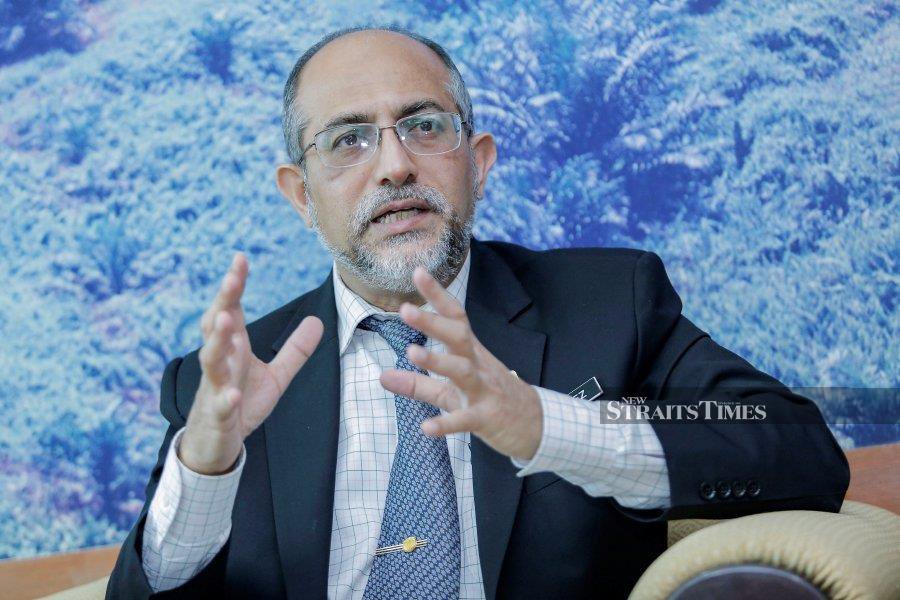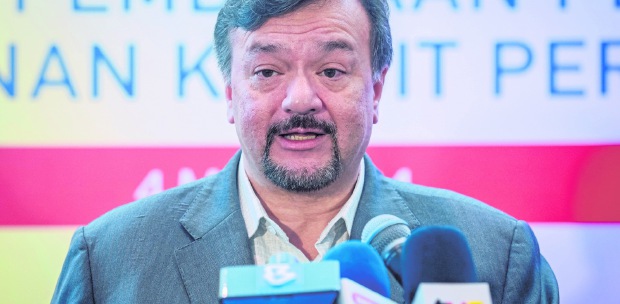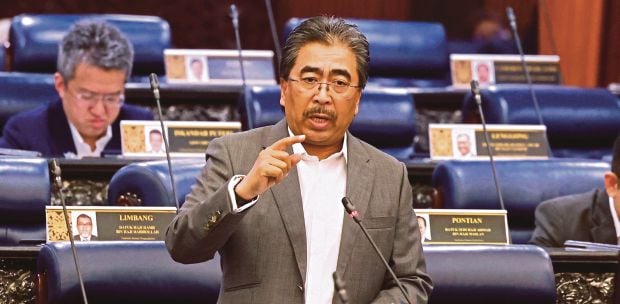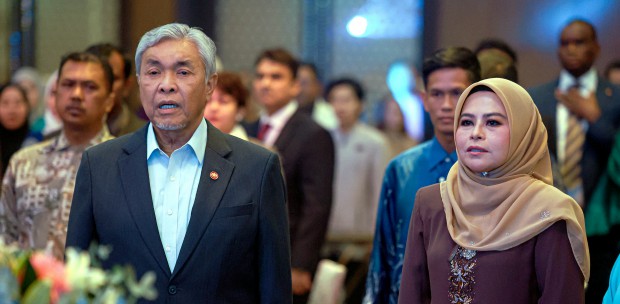The role of the media is undeniably important in keeping people with the latest information.
Malaysian Palm Oil Board (MPOB) acknowledges the media's vital role in disseminating the latest
developments in the oil palm industry.
MPOB has organised a luncheon talk for media editors, the first since I took the helm of the board in May last year.
It was heartening to see a good turnout, despite the rising number of Cobvid-19 cases in the country.
The senior management of MPOB and I had the opportunity to interact with the editors and journalists as well, getting to know each other and providing them with updates in the oil palm industry.
As the West continues to attack our palm oil with their negative campaigns on environmental impact, people's health and social impact, the role of the media is indeed important in disseminating accurate information.
The media has been playing their significant roles in reporting the truth about the nation's palm oil, countering news reports on claims that palm oil is linked with deforestation, loss of biodiversity and the misleading labelling such as "no palm oil" and "Palm Oil Free".
The most recent attack is on forced and child labour issue, involving one of Malaysia's largest plantation company.
Since 2009, the US Department of Labour has included the Malaysian palm oil industry in its List of Goods Produced by Child Labour or Forced Labour.
This year, Malaysia was ranked Tier 2 Watch List in the Trafficking in Persons Report issued by the US State Department's Office.
The Ministry of Plantation Industries and Commodities, together with MPOB, is taking measures to address the issue and subsequently remove the Malaysian palm oil industry from the list.
We have been conducting various programmes to increase awareness and educate the industry on forced and child labour.
The industry players particularly those in the plantation sector are reminded to avoid any element of forced and child labour in their operations.
These baseless accusations against palm oil by the West are aimed at protecting their domestic oil and fats such as olive oil, rapeseed, soybean, sunflower and other oilseeds.
The Malaysian oil palm plantations make up 21.9 per cent of the world's oil palm matured area of 23.812 million hectares.
Oil palm, which utilises about 0.46 per cent of the world's 5.1 billion hectares of agricultural land, holds great future prospects, especially, for Malaysia.
Despite the attacks against palm oil, the outlook of the palm oil industry remains bright driven by the rising demand for food, oleochemicals and biofuel in sync with the growth in the world's population and economy.
With the rising global oil and fats demand, we have to rely on high-yielding crops like oil palm to feed a growing world population.
Palm oil is the largest oil consumed globally. It makes up 33 per cent of the world's oils and fats consumption.
Demand for palm oil will continue to grow, providing a huge opportunity for the Malaysian palm oil.
The world's growing reliance on palm oil will boost demand further for the commodity.
In sync with that, the world's consumption of vegetable oils is projected to increase by 19 per cent to 250 million by 2050 from 210.4 million recorded in 2019 to meet the demand of 9.7 billion population, forecast for 2050.
The certification of Malaysian palm oil, through the Malaysian Sustainable Palm Oil (MSPO), widens its market access globally.
The MSPO certification has been mandatory from January 1, 2020 to create a globally accepted sustainability system and branding of Malaysian palm oil to become a global consumers' choice.
The truth about palm oil, its advantages, economic value and its benefits, should continue to be shared with the public.
* The writer is the director general of Malaysian Palm Oil Board





